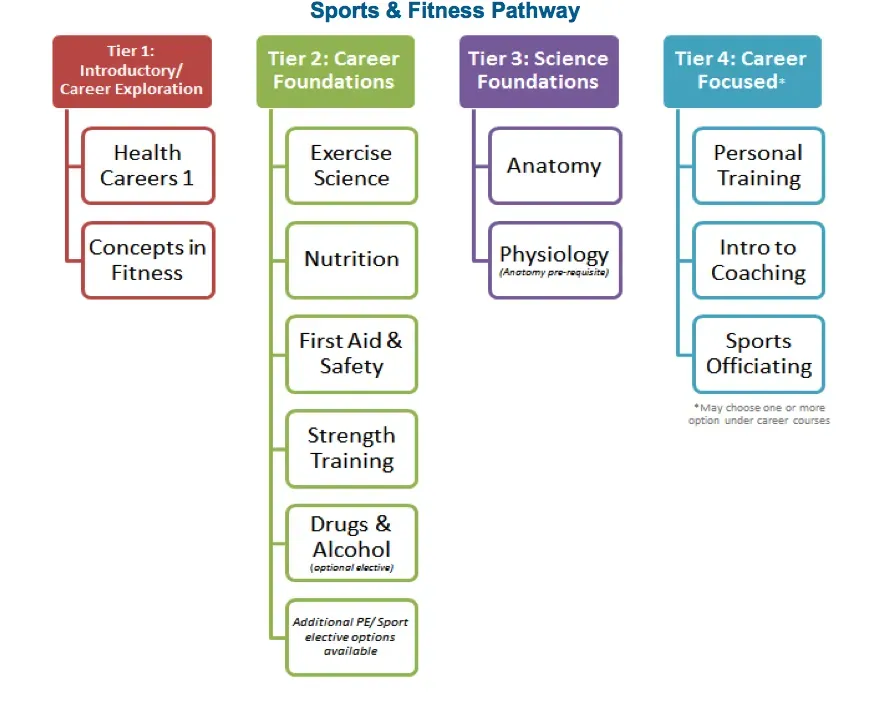Career paths in sports open a world of opportunity for athletes and fans alike, weaving together competition, coaching, administration, and media into a durable, purpose-driven professional journey that can adapt as leagues evolve, technologies shift, and audiences become more global. Across sports careers at every level, professionals leverage transferable skills, such as leadership, discipline, communication, and strategic thinking, to explore roles in coaching, management, analytics, performance science, and event operations, turning a lifelong love of sport into a sustainable livelihood with measurable impact. For those pursuing the path from player to coach, practical steps include targeted coaching education, hands-on mentoring, a growing portfolio of training plans and video analyses, and deliberate networking that connects you with mentors who can open doors to opportunities. If your goal is to understand how to become a coach in sports, you’ll find that credentials, safety certifications, internship experiences, and a clear coaching philosophy, matched with real-world practice, are often the keys that separate aspiring mentors from seasoned leaders. Whether you’re drawn to on-the-field leadership or behind-the-scenes roles in operations, administration, or media, a thoughtful transition from athlete to coach or into related fields helps you build a versatile, future-proof foundation within the wide spectrum of sports career opportunities.
Beyond the explicit label of career paths, the topic can be reframed as coaching trajectories, athlete-to-coach transitions, and leadership tracks within the broader sports industry. Alternative terms emphasize similar opportunities in coaching careers, sports administration, performance analysis, brand development, and media roles that rely on discipline, communication, and authentic knowledge of athlete development. Thinking in terms of pipelines, mentorship networks, data-driven decision making, and stakeholder management helps you map a route that plays to your strengths while tapping into growing sectors like analytics, marketing, and event operations.
Career paths in sports: a landscape of roles and opportunities
The sports world is a dynamic ecosystem that includes athletes, coaches, administrators, analysts, scouts, media professionals, and countless support staff. This broad landscape creates many entry points for people who love sport and want to build a meaningful career around it. When you think about career paths in sports, you’re considering how to blend your passion with transferable skills such as leadership, communication, and problem-solving. Whether you’re chasing on-field work, an office role, or a hybrid position, there are opportunities that reward expertise, reliability, and the ability to learn continuously. This is where the idea of sports careers becomes personal—your unique background can shape a distinctive path.
From coaching to management, analytics to media, every role benefits from a solid foundation in sport-specific knowledge paired with organizational and interpersonal skills. The common thread is the capacity to teach, motivate, analyze, and manage resources. As the industry evolves, emerging areas such as data-driven decision-making, digital marketing for teams, and event operations expand the traditional image of a coach leading a squad on game day.
In practical terms, the landscape typically unfolds along several tracks: player-to-coach progression, coaching and performance support, sports management and administration, analytics and science, and media and broadcasting. Each path leverages a different blend of hands-on experience, formal credentials, and mentorship networks. Understanding these tracks helps you map a personal roadmap—for example, blending direct coaching with performance analytics or stepping into athletic department leadership. With the right plan, you can move from the field to the front office or the classroom, all while staying connected to the sport you love.
How to become a coach in sports: credentials, practice, and philosophy
If you’re asking how to become a coach in sports, start with a strong foundation in coaching education. This includes sport-specific clinics, accredited coaching licenses, and certifications that demonstrate safety awareness and a formal understanding of training methodologies. Early credentials signal readiness to work with players and to design development-focused practice plans. Alongside credentials, seek practical, hands-on experience in youth programs, schools, or community clubs to translate theory into actionable coaching practice.
Credentials matter, but they’re only part of the equation. A clear coaching philosophy—your beliefs about practice design, player development, culture, and accountability—helps you recruit players, earn buy-in, and communicate goals. Building a portfolio that shows training plans, session outcomes, and player progress adds credibility. In today’s sports world, combining formal qualifications with real-world mentoring and proven results is a powerful way to establish yourself as a capable coach.
Beyond licenses, consider how ongoing learning will shape your career. Attend coaching conferences, participate in professional associations, and connect with mentors who can guide you through the nuances of your sport. Emphasize safety, injury prevention, and mental skills coaching—these are essential components of modern coaching. As you advance, seek opportunities to specialize (e.g., strength and conditioning, goalkeeping, or pitching) and to expand your coaching repertoire with data-informed approaches and inclusive leadership practices.
Transition from athlete to coach: turning on-field insight into training leadership
Transitioning from being an athlete to taking on coaching responsibilities is a natural shift for many professionals who have lived the sport from the inside. This transition from athlete to coach leverages your on-field insights, competitive mindset, and experience with training loads, game dynamics, and team culture. Your intimate knowledge of what players feel during practice and competition can inform more effective development plans and smarter game management. The key is to formalize that insight into structured coaching methods and a teachable philosophy.
A practical starting point is to map your playing experiences onto teachable routines. Start with youth programs or assistant coaching roles to practice communication, feedback delivery, and session design. Build a portfolio that highlights your observations, player progress, and demonstrated leadership in a team setting. Networking with senior coaches, mentors, and sports administrators will uncover opportunities to advance from assistant roles to head coaching positions and beyond.
Sports career opportunities beyond coaching: management, analytics, media, and more
Career opportunities in sports extend well beyond the sideline. Sports career opportunities span administration, program development, league operations, event management, and fan engagement, offering paths that reward strategic thinking, budgeting, and stakeholder collaboration. If you’re drawn to leadership and organizational impact, these roles enable you to influence program quality, compliance, and performance outcomes without always being on the field.
Analytics and science are increasingly central to decision-making in sport. Performance analysts, data scientists, biomechanics researchers, and sport scientists help teams optimize training, scouting, and game strategy. Complementing this, sports marketing, communications, and media roles translate expertise into storytelling, audience growth, and sponsor value. The diversity of opportunities means you can craft a hybrid career that combines elements of operations, analytics, and public-facing work.
Building a data-driven coaching and performance career
A data-driven approach to coaching means embracing performance analytics, statistics, and visualization tools to inform practice design and game strategy. Skills in data collection, interpretation, and reporting help coaches identify trends, measure progress, and tailor development plans to individual players. As the industry leans into science-backed methods, the ability to translate raw numbers into actionable coaching decisions becomes a valuable differentiator.
Developing a robust foundation in sports science, biomechanics, and sport technology will support this trajectory. Pursue coursework or certifications in statistics, data analysis, and performance measurement, and seek internships with teams or research labs that apply data to training outcomes. A strong portfolio that shows how data influenced training decisions, injury prevention, or performance improvements will help you stand out to future employers.
Leadership, administration, and media: shaping the future of sports careers
Leadership roles in sports administration, athletic departments, and league operations allow you to shape policy, programs, and resource allocation that impact athletes and communities. These positions require strategic thinking, budget management, governance knowledge, and the ability to build partnerships with sponsors, schools, and clubs. If you’re drawn to the bigger picture of how sports organizations function, this track offers meaningful impact beyond coaching. This is also a natural path for those who want to influence sports careers at scale.
Media, broadcasting, and public-facing roles let you translate technical expertise into accessible storytelling. Analysts, commentators, and on-air talent bring the science and strategy of sport to fans through television, streaming, and digital platforms. A successful transition into media often combines in-depth sport knowledge with communication skills, content creation capacity, and a strong professional network. By positioning yourself at the intersection of performance insight and communication, you can influence how audiences understand and engage with sport.
Frequently Asked Questions
What are the main Career paths in sports and how do they relate to sports careers?
Career paths in sports include coaching, sports management, analytics, sports science, media, and event operations. These roles blend sport knowledge with leadership, analysis, and organizational skills to create diverse sports careers. To explore them, map your interests to specific roles, pursue relevant certifications, and gain experience through volunteering or internships.
What is the path from player to coach in sports, and how can I start?
The path from player to coach in sports starts with education and hands-on practice. Begin with coaching clinics and certifications, gain experience in youth or school programs, observe senior coaches, develop your coaching philosophy, and build a portfolio that documents your results and approach.
How to become a coach in sports, and what certifications matter within Career paths in sports?
To become a coach in sports, pursue formal credentials such as coaching licenses or sport-specific certifications, complemented by practical coaching hours. Seek mentorship, attend coaching conferences, and continuously develop strategies for practice design, player development, and leadership to strengthen your entry in Career paths in sports.
What sports career opportunities exist beyond coaching in the Career paths in sports?
Beyond coaching, sports career opportunities include athletic administration, performance analytics, sports marketing, scouting, and event operations. Each path uses core sports knowledge in different ways, from managing programs and analyzing data to promoting teams and coordinating events.
How can a transitioning athlete leverage the transition from athlete to coach to advance in sports careers?
Transitioning athletes can leverage transferable skills such as leadership, communication, discipline, and strategic thinking. Focus on targeted education, seek mentorship, start with entry-level coaching roles, and gradually take on greater responsibility to progress within Career paths in sports.
How should I plan for long-term growth across Career paths in sports, including analytics, administration, and media?
Plan for long-term growth by setting phased goals, gaining diverse experiences across roles and levels, earning relevant certifications, and building a strong professional network. Commit to lifelong learning to stay current with evolving sports business, technology, and world of analytics, administration, and media.
| Aspect | Key Points |
|---|---|
| Overview | Career paths in sports offer diverse opportunities beyond playing, spanning roles in business, science, media, and community work. |
| Main career tracks | Player to coach; Coaching and performance roles; Sports management/administration; Analytics and science; Media and broadcasting |
| From player to coach: Steps | Coaching education; Hands-on experience; Observe and learn; Develop a coaching philosophy; Build a portfolio; Mentorship and networking; Prioritize safety and psychology |
| Beyond coaching | Sports management/administration; Performance analytics and science; Sports marketing and communications; Scouting and talent development; Event operations and athlete services |
| Long-term growth plan | Set goals; Invest in credentials; Diverse experiences; Internships and volunteering; Networking; Lifelong learning |
| Real-world considerations | Job variability/location; Education funding/costs; Competition for top roles; Balancing passion with practicality |
Summary
Career paths in sports offer a dynamic landscape for turning passion into a lasting profession, spanning coaching, administration, analytics, media, and more. From playing to leadership roles, success comes from developing transferable skills, gaining hands-on experience, and building a strong professional network. The paths are diverse and interconnected, encouraging ongoing learning, strategic planning, and the ability to adapt to evolving opportunities in sports. By pursuing targeted credentials, diverse experiences, and active mentorship, you can craft a rewarding career that grows with the industry.



